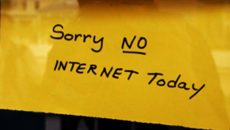Modern society is getting increasingly more dependent on computers and those same machines are replacing various minimum-wage jobs.
For instance, in many developed nations, the supermarket cashier has been superseded by a self-checkout computer. After a customer has finished shopping, they may purchase their item by scanning the item’s barcode with a barcode scanner. Within the barcode are the price and the identity of the product getting purchased.
A computer is like an empty cardboard box; it is designed to carry out various instructions as requested of it by its user. In other words, computers are empty-headed and subservient.
Those who know how to manipulate a computer are the people who make the computer seem intelligent.  The most effective way to manipulate a computer is to code it. Coding is instructing a computer’s actions step-by-step; it is a systematic collection of laws or regulations.
For example, if a computer is instructed to make a sandwich, you must tell the computer how to pick up the bread and how to hold the bread before you even start to build the sandwich, given that all of the ingredients to make the sandwich are available.
The trick is to speak in a language that the computer understands, often the language i.e. C++, JAVA, JavaScript, NOSQL, Python, R, or C#. Most consider coding as learning a new language in order to instruct the computer to carry out various functions.
Coding skills are a must in today’s environment.  The functions that computers can complete are applied with coding to make our lives easier. We find these automated services threatening because they replace our skills and limit our job options. The jobs in the highest demand are computer software engineer, cloud architect, computer systems analyst, data scientist, and web developer.
Even more so, we are transitioning into a working climate where data is our primary commodity, and we must learn to leverage it as a money-making product.  This will naturally limit the account of traditional service-oriented jobs like the ones described above.
This year, Africa Code Week is being celebrated from October 15-23, 2016, in 30 African nations. The ambitious initiative is an annual week-long workshop aimed at increasing digital literacy across the African continent.
The program is led by 1,500 coding teachers in IT-equipped buses and classrooms. Students, ages 8-17, learn to code from a platform named, SCRATCH, developed by the MIT Media Lab to simplify coding.
Unfortunately, Liberia is not one of the countries participating in this year’s Africa Code Week.  The good news is that Wahjay- STEM has launched an in-school STEM curriculum – for science, technology, engineering, and mathematics – this academic year that includes coding and uses the exact strategies used with the SCRATCH technology of MIT for its participating students to learn code.
The program was implemented at the World Wide Mission Academy, owned by the Nyonblee Cares Foundation.  Even better news is that Liberia is not alone in its effort to equip its people with the right skills to thrive in a world that demands computer coding knowledge.
Many nations are currently engaged in initiatives that support their local primary and secondary school students in pursuing coding skills. The United Kingdom is overhauling its national curriculum to include a compulsory computer science program.  The US is diversifying their current STEM professions with people from various backgrounds and encouraging all classrooms to implement curriculums that are competitive with nations that are considered more STEM-progressive. China is exposing their preschool students to coding via private coding classes. India is encouraging its youth to code via many country- initiatives and is even reaching out to its rural students.
Join us in supporting Wahjay-STEM by donating your time, and helping fund the project. Recently, Wahjay-STEM deferred its initiative at the Buchanan Demonstration School because there were not enough resources to support all of the school’s students and World Wide’s students in 4-6th grade.
One of the major resources that we need are workbooks for each student, which costs US$10 each. We need a total of 35 workbooks. Additional resources that the initiative can use are desktop computers. We have three desktop computers with no computer monitors. Lastly, volunteers can be a big help in training the teachers on basic engineering concepts and hosting field trips for the kids.  The program is being held in Buchanan.
Wahjay-STEM is Liberia’s present Africa Code initiative that has been infiltrated in our school system. We have been working with Saku Dukuly, the assistant minister of science, and Yukhikho Amnon, the assistant minister of early childhood education, in creating a STEM standard for Liberia’s primary education system.
Buchanan Demonstration has close to 300 students total and World Wide has 30 students in those classes. Wahjay – STEM secured 10 robots, and would need much more (55 more, one per five-person team). We obtained three computers and would need much more to support Buchanan Demonstration as well (20 more, one for every 10 students). Wahjay- STEM was not able to obtain any workbooks for the students. The students need these workbooks to practice concepts taught in class.
We would need 30 books for World Wide and 300 books for Buchanan Demonstration, totaling 330 books.  Most of the basic resources required for the program, including the robots and computers, were funded by US supporters and the Wahjay-STEM board. Most recently, two robots were donated by members of the Senate. Lonestar Cell MTN donated internet service for the 2016-2017 school year.  Volunteers are needed to train the teachers on basic engineering concepts and computer skills.
You may message us on Facebook to find out more on ways that you can help. Next year, we would love to see Liberia registered as a part of Africa Code Week in addition to spreading the in-school curriculum that is undergoing at the World Wide Mission Academy.
Featured photo by Clint Mason



